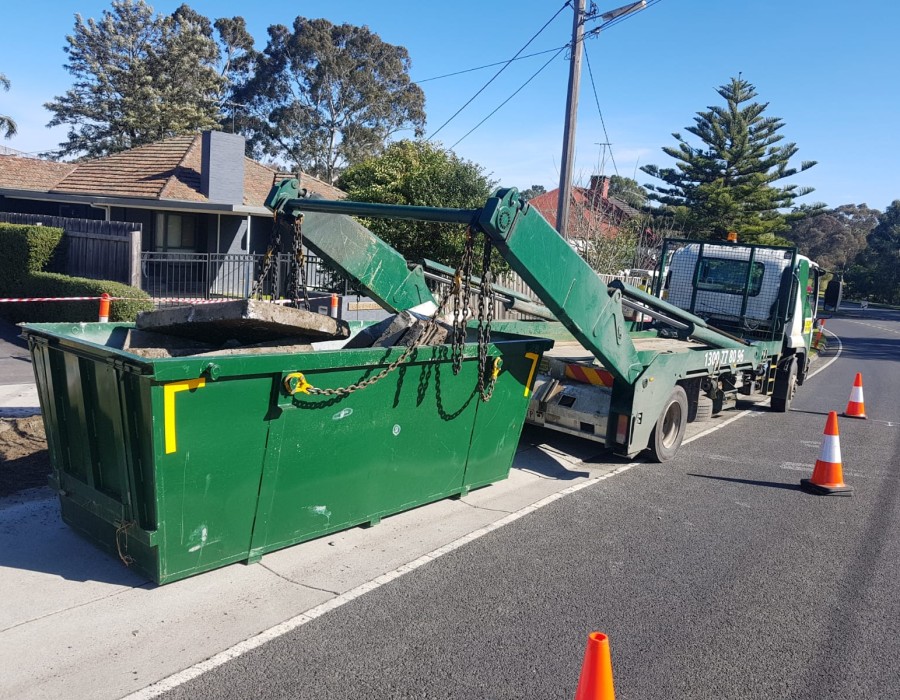Whether you’re tackling a home renovation, clearing out the garden, or managing waste at a construction site, skip bin hire is one of the easiest and most efficient ways to deal with rubbish.
But if you’ve never hired one before, it can be hard to know where to start—what size do you need? What can and can’t go in the bin? How much should it cost?
In this guide, we’ll break down everything you need to know about skip bin hire so you can confidently book the right bin for your needs—without any unexpected surprises.
Quick Overview: Skip Bin Hire at a Glance
- Skip bins come in a variety of sizes, from 2m³ mini bins to massive 30m³ containers for commercial use.
- You can’t put just anything in a skip—hazardous materials like asbestos, chemicals, and tyres are often prohibited.
- Prices vary based on size, location, hire duration, and type of waste.
- Same-day delivery and pickup is possible with many local providers.
- Choosing the right provider means looking at more than just price—reliability, waste handling practices, and customer service all matter.
Want to dive deeper into skip bin hire tips, costs, and common pitfalls? Keep reading!
What Is Skip Bin Hire, Exactly?
Skip bin hire is a waste disposal service where a company delivers a large, open-topped container (a skip bin) to your location. You fill it with rubbish, and they collect it once full—or after an agreed time.
Typical Uses Include:
- Home renovations and demolitions
- Landscaping and garden cleanups
- Moving house or clearing clutter
- Commercial and construction site waste management
Pro Tip: Booking in advance during peak times (like spring or public holidays) ensures availability and better rates.
Choosing the Right Skip Bin Size
Ordering the wrong bin size is one of the most common and costly mistakes. Here’s a quick breakdown:
Skip Size
Ideal For
Volume (Approx. Wheelie Bins)
2m³
Small cleanups, decluttering
~8
4m³
Kitchen or bathroom renos
~16
6m³
Medium renovations or garden waste
~24
8m³+
Large renovations, builders’ waste
32+
Did You Know? Overloading a bin can result in extra charges or refusal of pickup. Always check the “fill line” before loading.
What Can (and Can’t) Go in a Skip Bin?
Understanding what you can legally put in your skip is crucial. Here’s a quick guide:
Allowed Waste:
- General household waste
- Old furniture and appliances
- Bricks, tiles, concrete (in mixed or specific bins)
- Garden clippings and branches
Prohibited Items:
- Asbestos
- Batteries and chemicals
- Paints and oils
- Gas bottles and tyres (often restricted or incur extra fees)
Pro Tip: Always ask your skip bin provider for a list of accepted materials before filling up. It could save you a lot in penalties.
Quick Guide: Avoiding the Common Skip Bin Headaches
A Typical Scenario:
You’ve planned a weekend garden cleanup. You book a bin, thinking the small size will be enough. By Saturday afternoon, it’s overflowing—and the pickup isn’t until Monday. Sound familiar?
Common Challenges:
- Not sure what size bin to get?
- Worried about hidden fees or weight limits?
- Unsure if certain items can go in the skip?
How to Solve It:
1. Choose the Next Size Up: It’s often cheaper to get one larger bin than two smaller ones later.
2. Read the Fine Print: Understand weight limits, restricted items, and possible surcharges.
3. Ask About Same-Day Delivery or Pickup: Many providers offer flexible options—if you know to ask.
4. Know Your Waste Type: Booking a “green waste” bin when you have mixed rubbish will lead to issues. Be clear on your waste type upfront.
Why It Works:
These tips help you avoid unexpected costs, reduce stress, and ensure a smooth waste removal process—especially during busy times.
Need help picking the right bin for your job? Reach out to a local provider for expert advice.
How Much Does Skip Bin Hire Cost?
Skip bin hire costs can vary quite a bit depending on your location, waste type, and bin size.
Average Price Ranges:
- Small Bins (2m³–4m³): $150–$300
- Medium Bins (6m³–8m³): $300–$500
- Large Bins (10m³+): $500+
Cost Factors Include:
- Location: Urban areas may have more competition (lower prices), while rural areas might be higher.
- Waste Type: Mixed waste is more expensive than clean-fill or green waste.
- Hire Duration: Short-term hires are cheaper; longer durations cost more.
- Access: Difficult delivery spots may add to your quote.
Bold takeaway: The cheapest bin isn’t always the best. Prioritise customer support and clear policies to avoid hidden fees.
FAQs About Skip Bin Hire
Q: How long can I keep a skip bin?
Most companies allow 3–7 days as standard. You can usually request extensions for an extra fee.
Q: Can I put mattresses or whitegoods in the skip?
Yes—but check first. These items are often allowed but may incur a surcharge due to recycling requirements.
Q: Will the skip damage my driveway?
Not usually, but it’s possible. Ask your provider if they use protective boards or padding under the bin.
Q: Do I need a permit to place a skip on the street?
If the skip will be on public property, many councils require a permit. Your skip provider can often arrange this for you.
Q: What happens to my waste after collection?
Reputable companies sort and recycle as much as possible. Always ask where your waste goes—it’s part of responsible disposal.
Conclusion
Skip bin hire is a practical, cost-effective solution for managing large volumes of waste, whether you’re renovating, gardening, or decluttering.
By understanding the different bin sizes, costs, and rules around waste types, you’ll be better equipped to make a smart choice—saving you time, money, and headaches.
When in doubt, speak with a reputable local provider who can guide you through the process and help you select the right option for your project.
Got rubbish to get rid of? A skip bin might just be your cleanest solution!





Comments